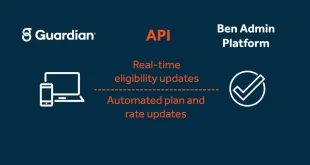
Key Components of Health Insurance
- Premiums: These are regular payments made by the policyholder to the insurer in exchange for coverage. Premium amounts vary based on factors such as age, health status, coverage level, and insurer policies.
- Deductibles: A deductible is the amount the policyholder must pay out-of-pocket before the insurance coverage kicks in. Opting for a higher deductible typically results in lower premiums but entails greater out-of-pocket expenses in the event of a claim.
- Co-payments and Co-insurance: Co-payments are fixed amounts paid by the policyholder for certain services or medications, while co-insurance refers to the percentage of costs shared between the policyholder and the insurer after meeting the deductible.
- Coverage Limits: Insurance policies often have limits on the maximum amount of coverage provided for certain services or treatments. It’s crucial to understand these limits to avoid unexpected expenses.
- Networks: Insurers often have networks of healthcare providers with whom they have negotiated discounted rates. Utilizing in-network providers can help minimize out-of-pocket expenses for policyholders.
Maximizing Health Insurance Benefits
While having health insurance is undoubtedly beneficial, understanding how to maximize its utility is equally important. Here are some key insights and strategies to unlock the full benefits of your health insurance:
1. Regular Health Check-ups and Preventive Care
Many insurance plans cover preventive services such as vaccinations, screenings, and annual check-ups at little to no cost to the policyholder. By taking advantage of these services, individuals can detect health issues early, leading to better outcomes and reduced healthcare costs in the long run.
2. Wellness Programs and Incentives
Some insurers offer wellness programs and incentives to encourage healthy behaviors among policyholders. These programs may include gym memberships, smoking cessation programs, or discounts on healthy foods. Participating in such programs not only improves health but can also result in premium discounts or other rewards.
3. Understanding Coverage Options and Benefits
Each insurance plan comes with its own set of coverage options and benefits. It’s essential for policyholders to thoroughly review their plan documents and understand what services are covered, what costs are involved, and any restrictions or limitations that may apply. This knowledge empowers individuals to make informed decisions about their healthcare utilization.
4. Utilizing Telemedicine Services
Telemedicine has emerged as a convenient and cost-effective way to access healthcare services remotely. Many insurance plans now offer telemedicine options, allowing policyholders to consult with healthcare providers via phone or video chat for non-emergency medical issues. Leveraging telemedicine can save time and money compared to traditional in-person visits.
5. Managing Chronic Conditions Effectively
For individuals living with chronic health conditions, proper management is paramount to maintaining health and avoiding complications. Insurance plans often cover medications, equipment, and services related to chronic disease management. By adhering to treatment plans and utilizing available resources, individuals can better control their conditions and improve their quality of life.
6. Reviewing and Updating Coverage Regularly
Life circumstances can change, affecting insurance needs and coverage preferences. Whether it’s getting married, having children, or changing jobs, it’s essential to review and update insurance coverage regularly to ensure it aligns with current needs and circumstances. Failing to do so could leave individuals underinsured or paying for coverage they no longer require.
Conclusion
In conclusion, insurance serves as a crucial tool in protecting both health and finances. By understanding the nuances of insurance coverage and leveraging available resources, individuals can unlock a wealth of benefits to enhance their well-being and mitigate the financial burden of healthcare expenses. From preventive care to chronic disease management, maximizing the utility of health insurance requires proactive engagement and informed decision-making. By embracing these insights and strategies, individuals can navigate the complex healthcare landscape with confidence and security, ensuring that their health remains a top priority for years to come.
 Accident Lawyers Offshore Accident Lawyers – Offshore Injuries & Jones Act Lawyer
Accident Lawyers Offshore Accident Lawyers – Offshore Injuries & Jones Act Lawyer



